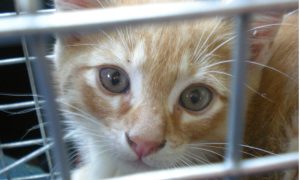The United Arab Emirates (UAE) has officially outlawed ownership of wild and “dangerous” animals as pets. Under the new regulations, anyone seen with a wild animal in public could spend six months in jail and be fined $136,000.
Big cats, such as lions and cheetahs, are all too commonly forced into domestic captivity in the UAE, where owning an exotic cat is seen as a sign of status and wealth.
Over the years, an abundance of videos social media posts have brought the issue international attention. We’ve seen everything from lions sitting in speedboats to cheetahs riding shotgun in Ferraris. But unfortunately for the animals, no manner of wealth can substitute for their freedom.
It’s obvious that owning a wild animal can be dangerous for human beings; not always obvious is the danger to the animal itself. Unlike their domestic counterparts, wild animals need an expansive, natural environment. Even in captivity, the animal’s wild instincts never fade.
And while a baby tiger may seem cute and cuddly, a grown one is incredibly difficult for a human to control, let alone properly care for. As a result, malnutrition and insufficient space create a stressful and often deadly environment for these animals. Whether in a zoo or in the back yard of a mansion, wild animals cannot thrive as they would in their natural habitat.
Sadly, exotic animals can rarely be returned to the wild because they lack the skills needed to survive. The best solution is to send them to animal sanctuaries, where they can live relatively full and happy lives.
While the new UAE law will go a long way in combating the problem of cruelty to wild animals, the legislation is not perfect. Zoos and circuses will still be allowed to keep wild and exotic animals, which is also inherently cruel. We can only hope the exotic pet ban is the first of many regulations that further protect our wild friends.







